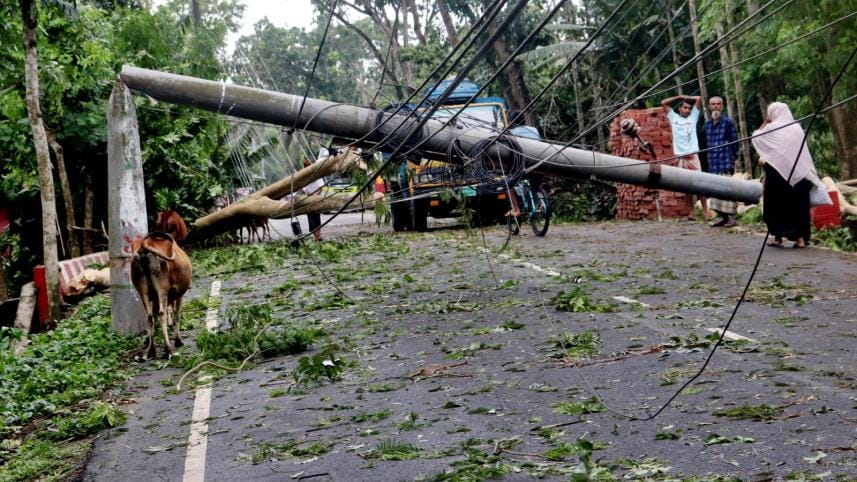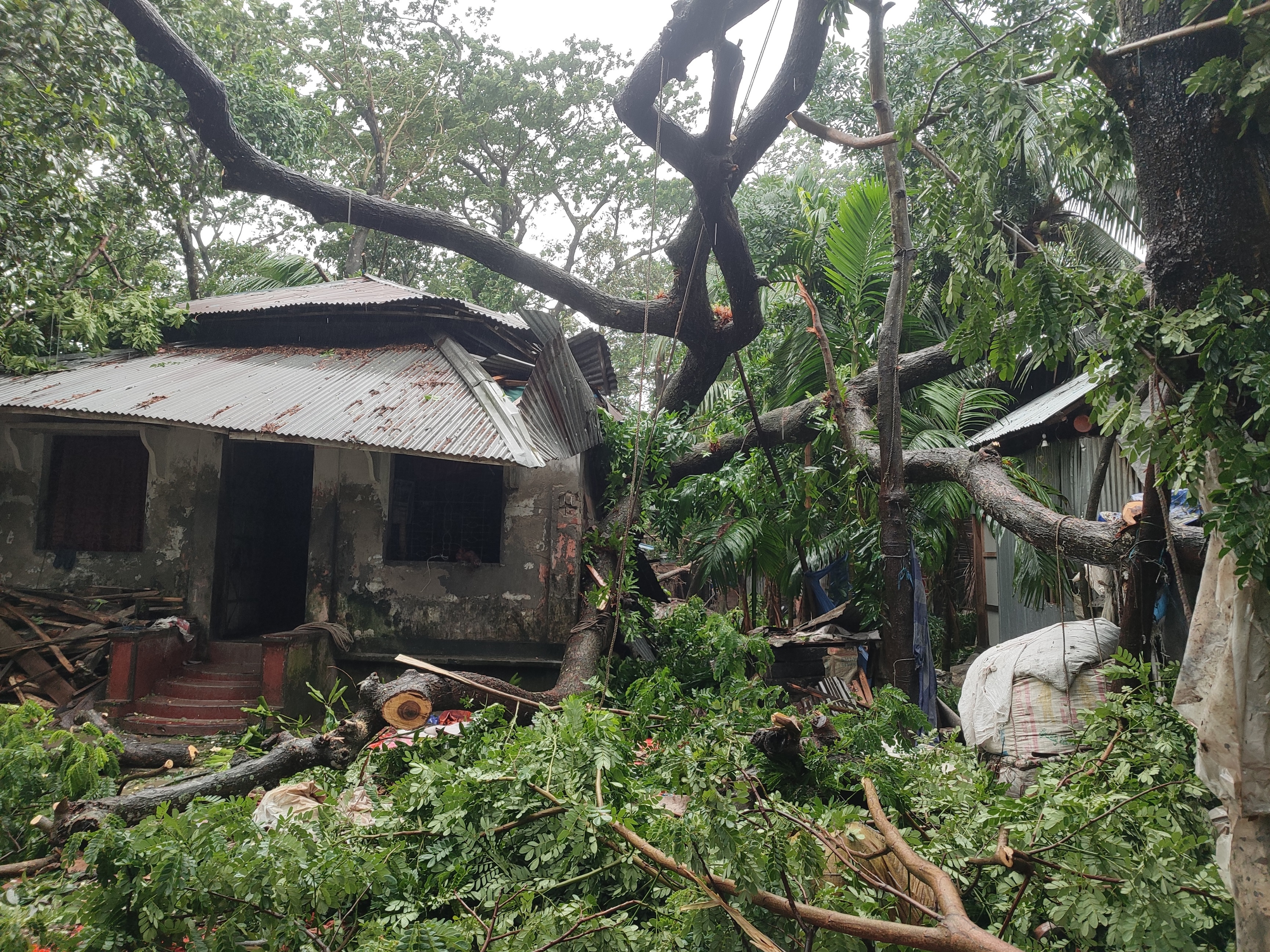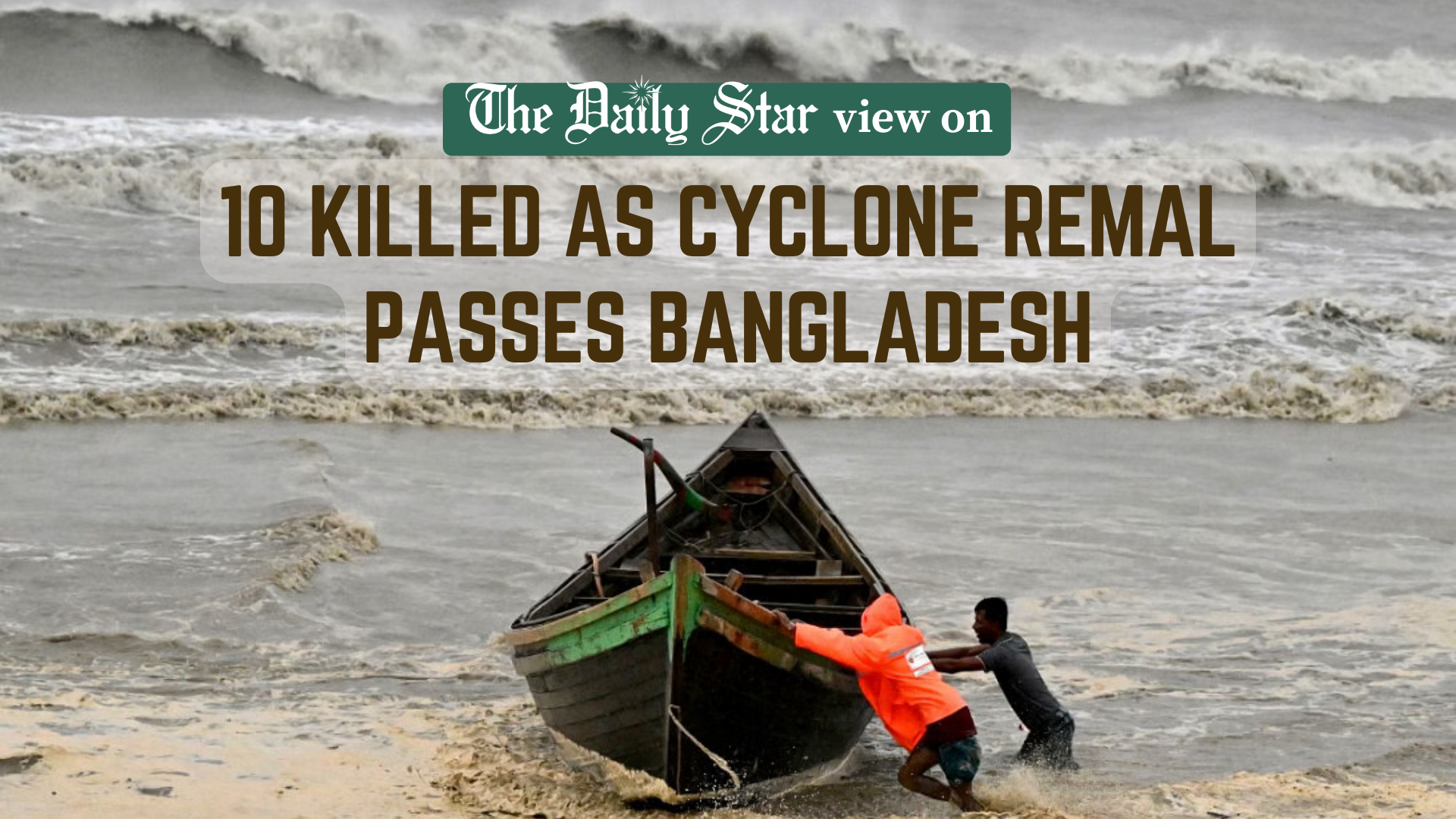Could a better transmission system ease power outages following Cyclone Remal?

Reports of widespread power outages in the aftermath of Cyclone Remal is a cause for grave concern, as it has the potential to impede the road to recovery after a devastating natural disaster. The lack of electricity will make everything from healthcare to relief efforts exponentially more difficult, as telecommunication infrastructure and connectivity is also taking a hit due to a lack of reliable power connections. While the cyclone was an extreme weather event whose impacts would have been difficult to predict, it's important to remember that the power sector in Bangladesh has long suffered from having weak power transmission systems, in stark contrast to overcapacity issues when it comes to power generation.
There has been a noted increase in Bangladesh's power generation capacity in recent years. In fact, the power generation capacity has far exceeded the peak demands projected by the sector for the last few years. This, however, has not translated into a secure energy supply for most of the country. Blackouts, power outages, and load sheddings still remain commonplace as the expensive power plants struggle to operate at full capacity due to difficulties in securing fuel. As capacity far outruns demand, the Bangladesh Power Development Board is stuck paying high prices for the fixed cost of power plants that mostly sit idle. Outsized capacity does not come cheap, as the burden of capacity charge payments has only grown year on year, taking up a large chunk of the government's subsidy budget, and weighing heavy on the taxpayer.
To make matters worse, transmission and distribution has remained largely ignored during this surge in capacity building in the power sector. Experts have long pushed for the government to switch focus to improving transmission systems. Blackouts and power outages in recent years have been attributed to weak transmissions systems, the lack of a smart grid, and a National Load Dispatch Centre that is not equipped to deal with volatility.
The data published by the power sector reveals the subtle but impactful way transmission infrastructure has been neglected in this country. The Bangladesh Power Development Board's (BPDB) annual reports from the last five years (between 2018-19 and 2022-23) show that in this time, demand has increased just over 21 percent, while power generation capacity has gone up by around 31 percent. Throughout this period, generation capacity has outpaced power demand consistently by around 50 percent every year, yet investment in growing generation capacity has continued.
On the other hand, building up transmission infrastructure, one of the ways to bridge the gap between capacity generated and demand served, was neglected. Over these five years, the network of transmission lines grew by 26 percent only, from 11,649 circuit kilometres to 14,717 circuit kilometres.
Additionally, monthly reports by the Power Generation Company Bangladesh show that transmission and distribution systems are suffering. From April, 2023 to March, 2024, 24 instances of power interruption were recorded that could be attributed to transmission lines. If distribution infrastructure like grid and substation equipment is included, the number goes up to 115.
An enormous chunk of the population in the most devastated areas of the country have been without power since Cyclone Remal and may have to suffer further without power for up to seven days. The authorities involved are responding to the crisis and we can hope that the problems will be resolved as soon as possible. But it is worth pondering if the erratic fashion in which funds have been allocated towards the power sector in recent years—disproportionately towards generation while crucial transmission infrastructure lagged behind—have exacerbated the problem. With better planning, and better preparation for natural disasters (which are commonplace) with redundancies in place, it may have been possible to bring systems back online much faster. There may be better tidings in the near future, however, with reports that 27 percent of the upcoming power sector budget is being allocated towards transmission (up 11 percent from the last year), 28 percent towards distribution (up 34.8 percent), while 47 percent is allocated towards generation (down six percent).
Relief networks, communication, healthcare, and all crucial services in the recovery phase of a natural disaster rely on power. We need to be better prepared for the next time a cyclone hits our southern shores so that the bad decision making of the last few years in the power sector becomes irrelevant in the future.
Azmin Azran is digital features coordinator at The Daily Star.
Views expressed in this article are the authors' own.
Follow The Daily Star Opinion on Facebook for the latest opinions, commentaries and analyses by experts and professionals. To contribute your article or letter to The Daily Star Opinion, see our guidelines for submission.




 For all latest news, follow The Daily Star's Google News channel.
For all latest news, follow The Daily Star's Google News channel. 

Comments